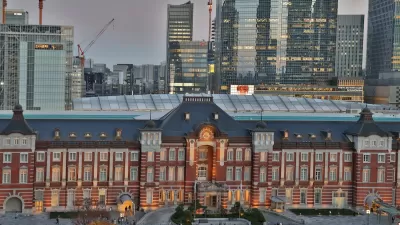In the third of a 5-part "Rethinking Green" series, the National Post casts doubt on public transit's ability to reduce global warming while praising driving; applying similar scrutiny to recycling and aquaculture in the first and second installments
Can driving be more sustainable than riding transit? What if the buses are continually empty? Or does it even matter if the primary goal of public transit is to serve those who don't have access to private auto transportation? These are the type of questions asked by the reporter in National Post's "Rethinking Green" five-part series.
"If the goal is to reduce carbon dioxide emissions, air pollution and gas consumption, and maximize the environmental impact of sustainability spending, we may be better off without publicly funding transit at all."
"Unfortunately, right now the state of the art is that you're generally better off with private automobiles when you're talking about energy utilization. About the only way that transit can be competitive for energy or for environmental quality is if the transit lines gets an incredible amount of use, far higher than is now normally the case," says Tom Rubin, a transit policy consultant in California, and former chief financial officer of the Los Angeles County Metropolitan Transportation Authority."
Thanks to Thomas A. Rubin
FULL STORY: Rethinking Green: Save the environment: Don't take transit

Alabama: Trump Terminates Settlements for Black Communities Harmed By Raw Sewage
Trump deemed the landmark civil rights agreement “illegal DEI and environmental justice policy.”

Planetizen Federal Action Tracker
A weekly monitor of how Trump’s orders and actions are impacting planners and planning in America.

Why Should We Subsidize Public Transportation?
Many public transit agencies face financial stress due to rising costs, declining fare revenue, and declining subsidies. Transit advocates must provide a strong business case for increasing public transit funding.

Understanding Road Diets
An explainer from Momentum highlights the advantages of reducing vehicle lanes in favor of more bike, transit, and pedestrian infrastructure.

New California Law Regulates Warehouse Pollution
A new law tightens building and emissions regulations for large distribution warehouses to mitigate air pollution and traffic in surrounding communities.

Phoenix Announces Opening Date for Light Rail Extension
The South Central extension will connect South Phoenix to downtown and other major hubs starting on June 7.
Urban Design for Planners 1: Software Tools
This six-course series explores essential urban design concepts using open source software and equips planners with the tools they need to participate fully in the urban design process.
Planning for Universal Design
Learn the tools for implementing Universal Design in planning regulations.
Caltrans
Smith Gee Studio
Institute for Housing and Urban Development Studies (IHS)
City of Grandview
Harvard GSD Executive Education
Toledo-Lucas County Plan Commissions
Salt Lake City
NYU Wagner Graduate School of Public Service





























